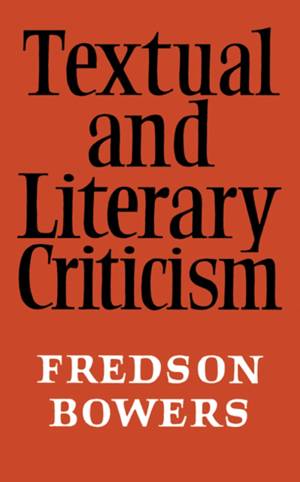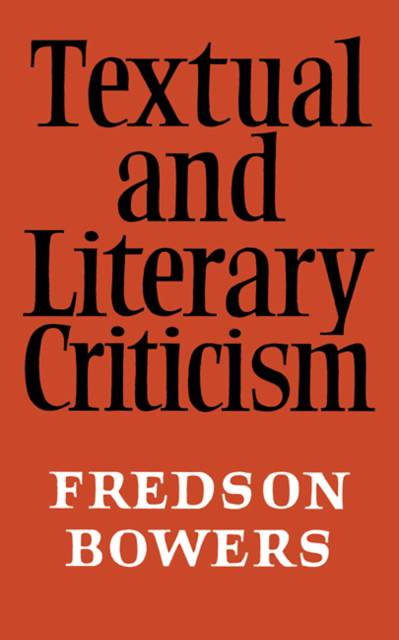
- Afhalen na 1 uur in een winkel met voorraad
- Gratis thuislevering in België vanaf € 30
- Ruim aanbod met 7 miljoen producten
- Afhalen na 1 uur in een winkel met voorraad
- Gratis thuislevering in België vanaf € 30
- Ruim aanbod met 7 miljoen producten
Zoeken
€ 60,95
+ 121 punten
Omschrijving
The literary critic tends to think that the textual scholar or bibliographer, happily occupied in his travel drudgery, has not much to say that he would care to hear, so there is a gulf between them. Professor Bowers advances to the edge of this gulf and says several forceful things across it; they turn out to be important and interesting, though occasionally scathing. The first chapter reminds us that the literary critic can only criticise with confidence when the textual critic has established what the author wrote; Professor Bowers indicates how very much has yet to be done. The second chapter takes a particular case, Walt Whitman's copy' for the 1860 edition of Leaves of Grass, and shows how the bibliographer can, by ingenious but rigorous deduction, give an insight into the growth of an author's conception of the nature and aim of his work. The other two lectures, on Shakespeare and other early dramatic texts, will show non-specialists the striking advances in editorial technique, and the growth of standards of scholarship in these studies.
Specificaties
Betrokkenen
- Auteur(s):
- Uitgeverij:
Inhoud
- Aantal bladzijden:
- 200
- Taal:
- Engels
Eigenschappen
- Productcode (EAN):
- 9780521094078
- Verschijningsdatum:
- 2/01/1966
- Uitvoering:
- Paperback
- Formaat:
- Trade paperback (VS)
- Afmetingen:
- 127 mm x 203 mm
- Gewicht:
- 222 g

Alleen bij Standaard Boekhandel
+ 121 punten op je klantenkaart van Standaard Boekhandel
Beoordelingen
We publiceren alleen reviews die voldoen aan de voorwaarden voor reviews. Bekijk onze voorwaarden voor reviews.











